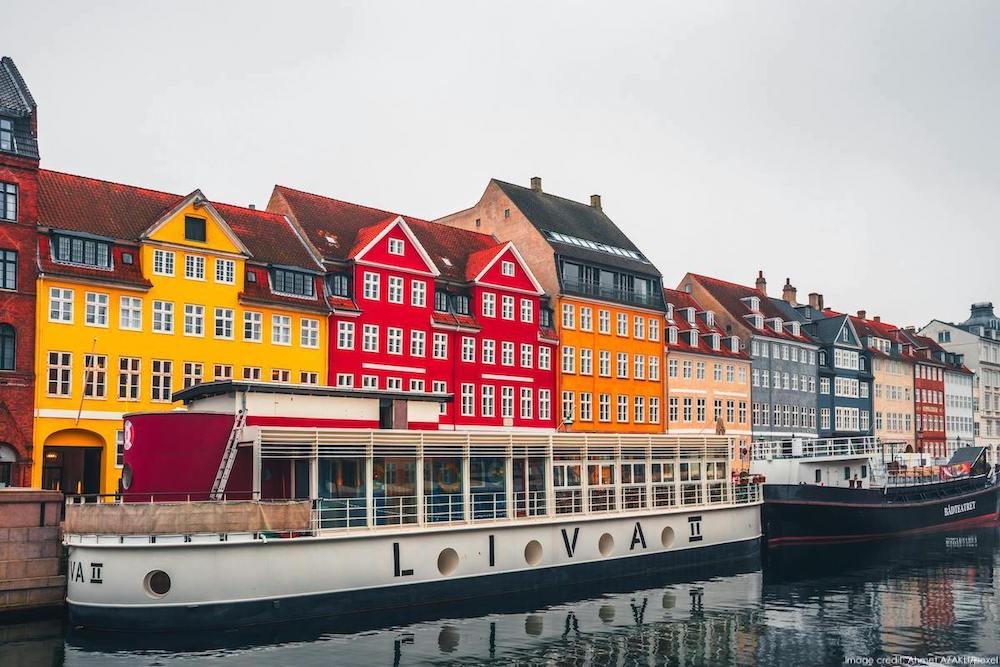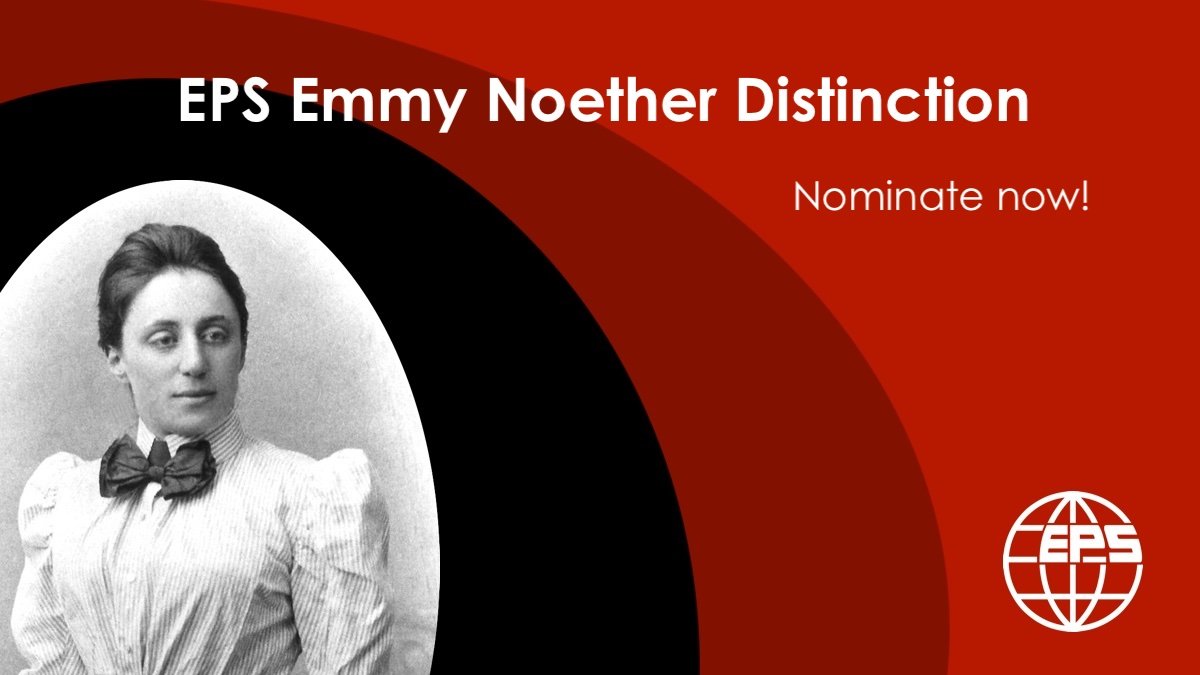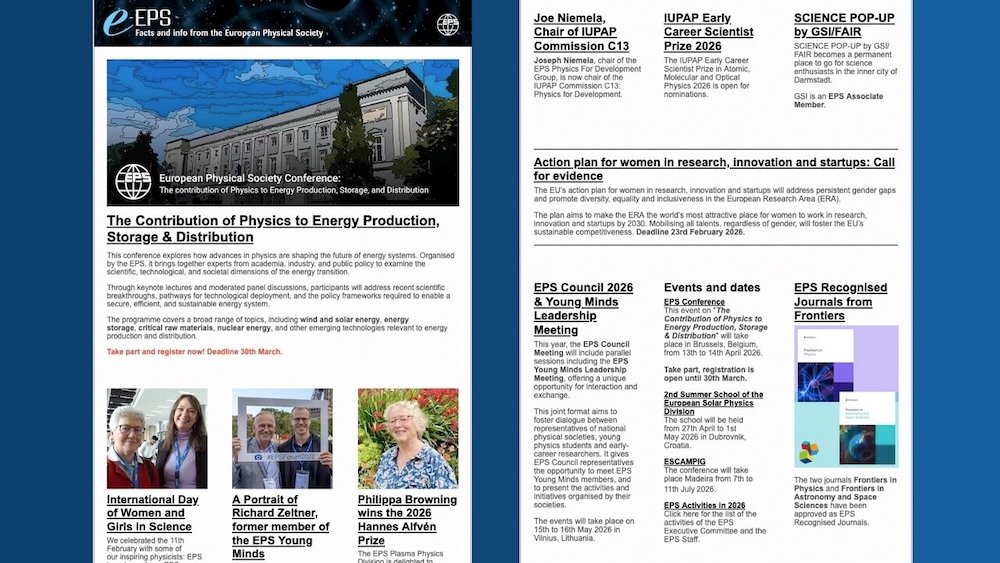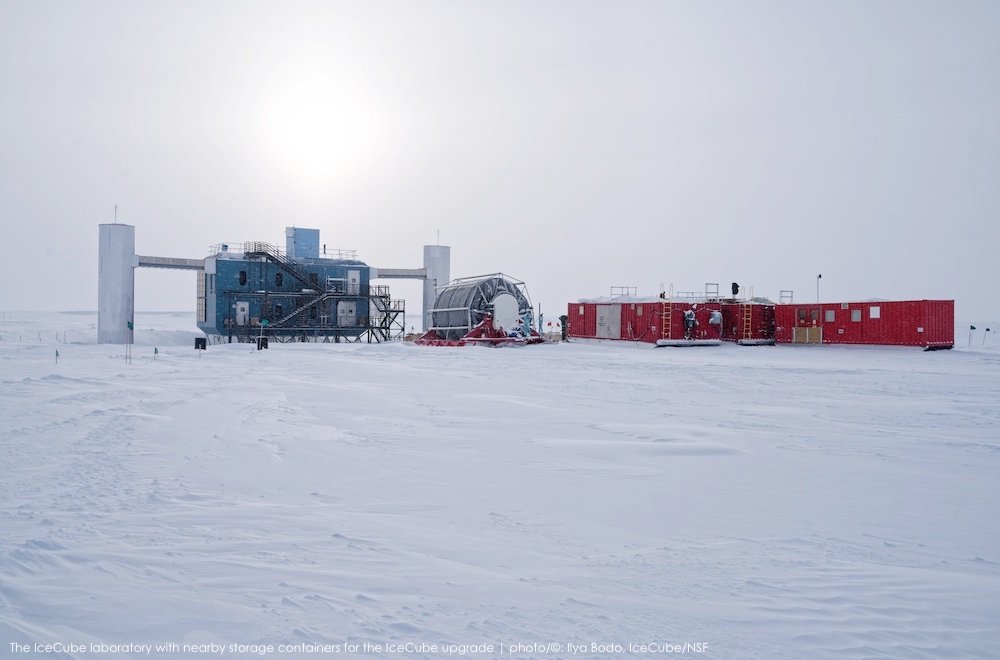José María De Teresa is the new EPS President-Elect
Prof. José María De Teresa leads the group of Nanofabrication and Advanced Microscopies (Nanomidas) at the Instituto de Nanociencia y Materiales de Aragón (INMA, CSIC-Universidad of Zaragoza) in Spain. He is the Coordinator of the Spanish network on Nanolithography (Nanolito) and the FIB-SEM area in the Spanish National facility for Advanced Microscopies. He was the past Chair of the Condensed Matter Division Board in the European Physical Society (EPS). His main research interests are nanofabrication with focused electron and ion beams, magnetic nanostructures, nano-superconductivity and quantum technologies. He has co-authored 240 research articles (11600 citations in Scopus) and given more than 100 invited conferences, being the supervisor of 20 PhD thesis (5 of them in progress). He has national and international distinctions, such as being Fellow of the APS (2021), of the EPS (2023) and of EURASC (2024).
During the EPS Council meeting in Copenhagen, Prof. De Teresa set out his plans for when he takes up office in 2026; he will work to implement the EPS’s mission, vision, and core values. Together with the EPS governing bodies and EPS stakeholders, he plans to develop actions along several axes, all serving the overarching goal to make EPS an even more dynamic society with increased direct impact on more than a hundred thousand European physicists. Regarding the commitment of the EPS with the society, the focus will be put on using the knowledge of its members about Physics and the tools and networks available at the EPS to reinforce the European values and to contribute to the sustainable development of Europe.


The Gero Thomas Medal Awarded to Professor Els de Wolf
The EPS council 2025 has awarded Professor Els de Wolf the EPS Gero Thomas Medal for “Her leadership of EuroPhysics News and her sustained contributions to EPS particular for diversity and inclusion”. The Gero Thomas Medal is awarded to individuals who have contributed very considerably to the EPS.
Prof. de Wolf has been involved in EPS for many years, serving on the Executive Committee from 2009 to 2014 during which period she was a key player in the foundation of the Equal Opportunities Committee and the establishment of the EPS Emmy Noether Distinction. More recently, Prof. de Wolf served as the Editor in Chief of Europhysics News, the print magazine of the society. During her time in the role, she indroduced the idea of so called “mini-themes” focussing the magazine’s output on a specific topics or themes which ranged from “Probing the Universe” to “Physics of Living Matter”, “Urban and Green Physics” to “Teaching Physics online”.
Dr Antigone Marino, who succeeded Prof. de Wolf at the helm of EPN congratulated her on the award of the medal, underlining that “Her outstanding achievements make her a most deserving awardee of this prestigious honour” Prof. de Wolf made her substantial contributions to the EPS in parallel with a distinguished scientific career as an experimental particle and astroparticle physicist. She has made significant contributions to neutrino physics, deep inelastic scattering, and neutrino astronomy. After earning her PhD from the University of Amsterdam in 1982, she transitioned seamlessly between academia and industry. Her work at International Shell Petroleum Maatschappij on software for seismic analysis honed her expertise in computational techniques. As a senior physicist at Nikhef, National Institute for Subatomic Physics, and associate professor at the University of Amsterdam, Els played leading roles in large-scale international collaborations. First in deep-inelastic scattering research using the ZEUS detector at the HERA electron-proton collider at DESY, Hamburg, Germany, . In 2000, although she was already a member of the ATLAS Collaboration at CERN, she decided to join the ANTARES Collaboration for cosmic neutrino research using a neutrino telescope in the Mediterranean Sea. Since 2003, she was involved in the design and construction of the successor of ANTARES, the KM3NeT neutrino telescope in the Mediterranean Sea. Until her retirement, from Nikhef she was project leader of the design and construction of the optical modules and the fibre optical network of the telescope and represented the University of Amsterdam in the KM3NeT Institutes’ Board.






